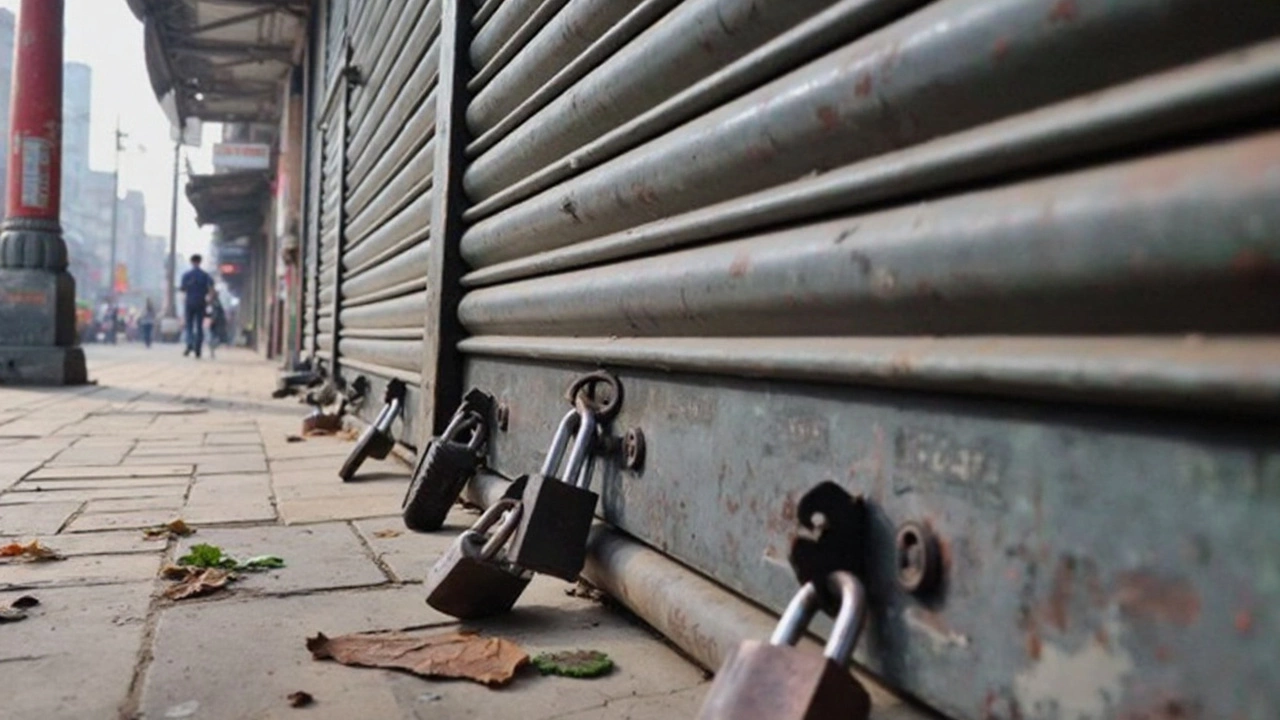Bharat Bandh on July 9: Massive Nationwide Strike Set to Disrupt Banks, Transport and Schools
 Jul, 9 2025
Jul, 9 2025
Why 25 Crore Workers and Farmers Are Calling for a Bharat Bandh
Mark your calendar for July 9, 2025—because you're likely to wake up to quieter city streets, empty classrooms, and banks with their shutters down. A colossal general strike, dubbed the Bharat Bandh, will sweep the country, as nearly a quarter-billion workers and lakhs of farmers gear up to protest economic policies they say are hurting common people for the benefit of big corporations.
This isn't just another day of demonstrations. We're talking about a shutdown orchestrated by 10 of the country's most influential labor unions. These include groups like the Indian National Trade Union Congress (INTUC), All India Trade Union Congress (AITUC), and Centre of Indian Trade Unions (CITU). What’s different this time? Farmers and rural workers have jumped into the fray alongside urban laborers. If you rely on buses, trains, or everyday services like banks and post offices, prepare for some real disruptions. There's a good chance your local school or college won’t be open, and getting your regular cash withdrawal might be next to impossible.
The scale is off the charts: more than 25 crore workers from sectors like banking, insurance, mining, construction, and postal services are expected to participate. Even in villages, farm and rural workers say they're ready to halt their daily routines in solidarity. At the center is a 17-point demand list the government has left on the back burner—covering everything from resisting labor law changes to stopping the rush to privatize public assets and roll out flexible (read: insecure) labor contracts.

What's Behind the Protest and Who's Steering the Ship?
This showdown didn’t appear out of nowhere. The unions first planned the strike for May 20 but pushed it back after intense debates about national circumstances. Now that the date is set, the unions are betting on record participation. Amarjeet Kaur from AITUC didn’t mince words, saying the government has avoided addressing worker grievances for over a decade. Even annual labor conferences—the usual platform for dialogue—have been missing from the calendar.
It's worth noting that not everyone is on board. The RSS-backed Bhartiya Mazdoor Sangh (BMS) is sitting out, but the absence of this big player isn’t slowing things down. The other unions and farmer groups are ramping up preparations, organizing rallies everywhere from big-city industrial hubs to small district headquarters. If you live near a state capital or a well-known market town, you can expect roads to be thick with marches and placards on July 9.
The heart of the protest beats with anger against what unions call "anti-worker, anti-farmer, and pro-corporate" policies. They’re pushing back against outsourcing, casual labor, and the privatization of companies that once belonged to the public. The strike isn’t just a day off work. It’s designed as a wake-up call to those in power, showing just how deep the frustration runs about jobs, wages, and rights in an economy that workers feel is slipping away from ordinary hands into those of big businesses.
Already, both city chawkidars and rural khet workers have signaled they’re ready for action. The networks organizing the strike have set up helplines, distributed protest materials, and mapped out routes for marches. Day-to-day life is expected to slow to a crawl, much like it did during previous large strikes—or maybe even more, if the turnout lives up to the buzz.
If you depend on state transport, need to visit a bank, run a shop relying on daily shipments, or have school-aged kids, you might want to reschedule your plans. The Bharat Bandh looks set to be the biggest disruption of its kind in recent memory—a sign that the fight between workers and pro-business economic changes is far from over.